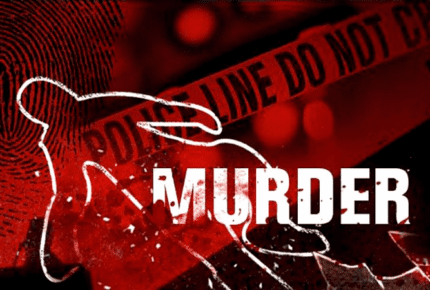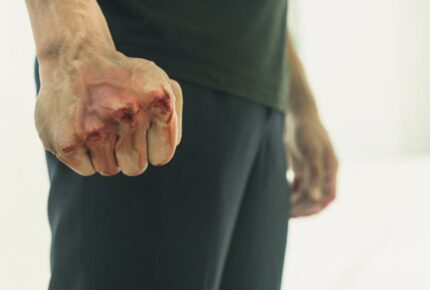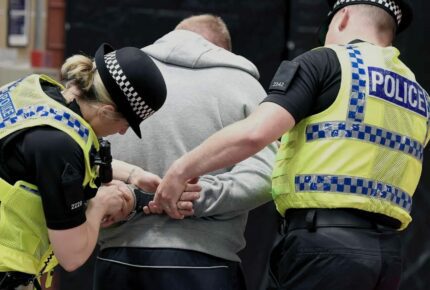

Facing a charge of grievous bodily harm (GBH) can be an overwhelming and frightening experience, especially if you have little or no previous contact with the criminal justice system. GBH is a serious offence under English law, and the consequences of a conviction can be severe, including the possibility of a lengthy prison sentence. If you or someone you care about has been accused of GBH, it is so important that you understand your rights, the legal process, and the importance of having expert legal representation. This article will guide you through the key issues you may face, from whether you need a solicitor, to the likelihood of bail, court appearances, sentencing, and the availability of Legal Aid. Our aim is to provide clear, accessible information to help you make informed decisions at every stage.
Do I need a solicitor for grievous bodily harm?
Grievous bodily harm is an offence under sections 18 and 20 of the Offences Against the Person Act 1861. Section 18 covers causing GBH with intent, while section 20 covers causing GBH or wounding without intent. Both are indictable offences, meaning they are considered serious and are usually dealt with in the Crown Court.
If you are accused of GBH, it is highly advisable to have a solicitor represent you. The law surrounding GBH is complex, and the consequences of a conviction are significant. Here’s why:
- A solicitor will ensure that your rights are protected from the outset, advise you on the strength of the evidence against you, and help you understand the charges and possible outcomes.
- They will also represent you during police interviews, ensuring you do not inadvertently say anything that could harm your case.
- In court, a solicitor will challenge the prosecution’s evidence, present your defence, and negotiate with the prosecution where appropriate.
Without expert legal advice, you may not be aware of possible defences, procedural errors, or mitigating factors that could reduce your sentence or even result in an acquittal. The stakes are simply too high to face a GBH charge without professional legal support.
What are possible defences for grievous bodily harm?
The prosecution must prove you caused serious injury and, for section 18, that you intended to do so. Possible defences include:
- Self-defence, where you used reasonable force to protect yourself or another person.
- Accident, if the injury was not caused deliberately or recklessly.
- Mistaken identity, if you were not the person responsible.
- Lack of intent, especially for section 18, if you did not mean to cause serious harm.
- Defence of another, if you acted to protect someone else.
- Challenging the evidence, such as unreliable witnesses or flawed forensic results.
Will I get bail for grievous bodily harm?
When you are charged with GBH, the question of bail is probably going to be one of your first ones. The court must decide whether you should be released from custody while awaiting trial or remanded in custody. The decision is governed by the Bail Act 1976, which requires the court to consider several factors.
The court will assess the seriousness of the offence, the strength of the evidence, your previous convictions, and your ties to the community. The main risks considered are whether you might fail to attend court, commit further offences while on bail, or interfere with witnesses or the course of justice. Because GBH is a serious violent offence, the court may be more cautious in granting bail, especially if there are aggravating factors such as the use of weapons, previous convictions for violence, or concerns about witness intimidation.
Will I have to go to court if I’m arrested or charged for grievous bodily harm?
If you are arrested or charged with GBH, it is almost certain that you will have to attend court. GBH is an indictable offence, which means it is too serious to be dealt with by a police caution or a simple out-of-court disposal. The process usually begins with a hearing in the Magistrates’ Court, where the basic details of the case are set out, and decisions are made about bail and legal representation.
After the initial hearing, cases of GBH are typically sent to the Crown Court for trial or sentencing, as the Magistrates’ Court does not have the power to deal with the most serious offences or impose the highest sentences. You will be required to attend all court hearings, including plea hearings, case management hearings, and the trial itself if you plead not guilty. Failing to attend court without a valid reason can result in a warrant for your arrest and may negatively affect your case.
Will I go to jail if found guilty of grievous bodily harm?
The possibility of a prison sentence is a major concern for anyone facing a GBH charge. The sentencing for GBH depends on whether you are convicted under section 18 or section 20 of the Offences Against the Person Act 1861. Section 18, which involves intent to cause serious harm, carries a maximum sentence of life imprisonment, while section 20, which does not require intent, carries a maximum sentence of five years’ imprisonment.
The actual sentence imposed will depend on a range of factors, including the severity of the injury, whether a weapon was used, the level of intent, your previous convictions, and any mitigating or aggravating circumstances. The court will refer to the Sentencing Council guidelines, which set out starting points and ranges for different levels of harm and culpability.
While a custodial sentence is common for GBH, especially for section 18 offences, it is not automatic. The court may consider alternatives such as a suspended sentence or community order in less serious cases, particularly if there are strong mitigating factors such as genuine remorse, a lack of previous convictions, or significant personal circumstances. A solicitor will present arguments and evidence to persuade the court to impose the most lenient sentence possible, taking into account all relevant factors.
Will I go to jail if it’s my first offence of grievous bodily harm?
If this is your first offence of GBH, the court will take your lack of previous convictions into account as a mitigating factor. However, because GBH is a serious violent offence, a prison sentence is still a real possibility, even for first-time offenders. The court will look at the circumstances of the offence, the level of harm caused, and your personal background.
For section 20 GBH, if the injury was less severe and there are strong mitigating factors, the court may consider a community order or a suspended sentence, particularly for first-time offenders. For section 18 GBH, which involves intent to cause serious harm, the courts are more likely to impose a custodial sentence, even for those with no previous convictions, due to the seriousness of the offence.
A solicitor can make a significant difference by presenting evidence of your good character, positive contributions to the community, and any other factors that may persuade the court to show leniency. They can also advise you on steps you can take before sentencing, such as engaging in rehabilitation or providing character references, which may help reduce the likelihood of a prison sentence.
Can I get Legal Aid for grievous bodily harm?
Legal Aid is available for those facing GBH charges, subject to both a merits test and a means test. The merits test considers the seriousness of the offence and the complexity of the case. Because GBH is a serious offence that can result in a prison sentence, it almost always meets the merits test for Legal Aid.
The means test assesses your financial situation to determine whether you qualify for free or subsidised legal representation. This involves looking at your income, savings, assets, and household circumstances, including the number of dependants you have. If your income and assets are below certain thresholds, you may be eligible for full Legal Aid. If your financial situation is above the threshold, you may still qualify for partial Legal Aid, which means you may have to contribute towards your legal costs.
A solicitor can help you complete the Legal Aid application, ensuring all relevant information is provided and advising you on what evidence is needed. They can also challenge any decision to refuse Legal Aid if you believe it is unfair. Having Legal Aid can make a crucial difference, ensuring you have access to expert legal advice and representation regardless of your financial circumstances.
Where to get more help
If you are facing a charge of grievous bodily harm, secure expert legal advice as soon as possible. The consequences of a conviction can be life-changing, and the legal process is complex and challenging to navigate alone. Stuart Miller Solicitors are highly experienced in defending clients accused of GBH and other serious offences. Our team will provide clear, practical advice, robust representation, and support at every stage of your case. For a free, confidential consultation, contact us today.
OUR COMMITMENTS TO YOU:
-
Responsive
A legal expert will consult you within 24 hours of making an enquiry.
-
Empathetic
We will always treat you with trust, understanding and respect.
-
Specialised
Your case will be handled by an expert who specialises in your type of offence.
-
Proactive
We will take early action to end proceedings as soon as it is practically and legally possible to do so.
-
Engaged
You will be kept updated on your case at all times. We will provide a named contact available to answer your questions.
-
Caring
We understand this is a difficult and stressful time for you and your family. Our team will support you every step of the way.
-
Tenacious
We will never give up on your case. We fight tirelessly to get you the best possible outcome.

